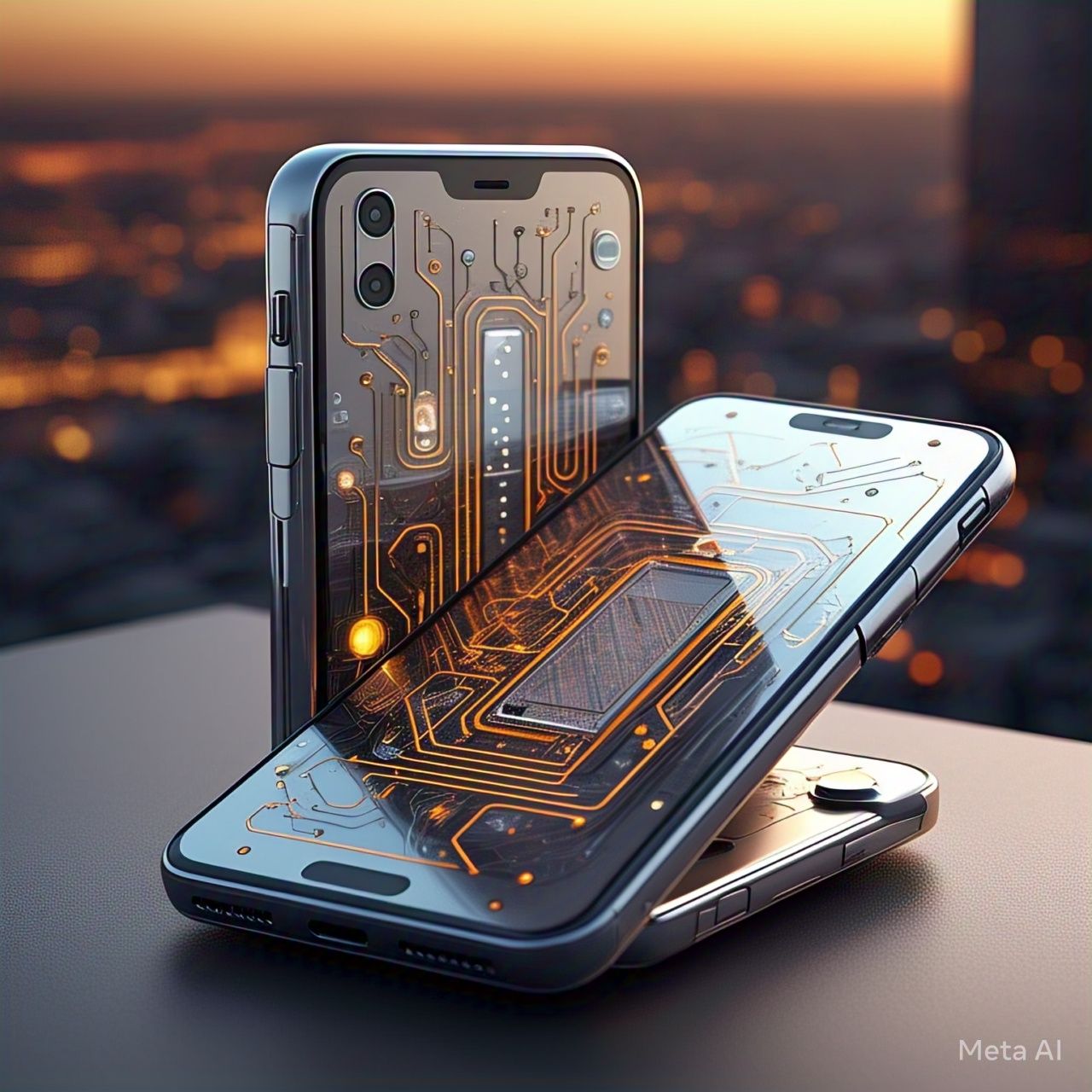Introduction
The smartphone industry is experiencing a major transformation with the rise of foldable smartphones, powered by AI and flexible electronics. These innovative devices offer larger, more versatile displays while maintaining portability. However, for foldable smartphones to be truly practical and durable, AI plays a critical role in optimizing performance, enhancing user experience, and improving durability.
In this article, we explore how AI and flexible electronics are shaping the future of foldable smartphones, making them smarter, more efficient, and more adaptive to users’ needs.
How AI Enhances Foldable Smartphones
1. AI-Driven Display Optimization
Foldable screens require intelligent adaptation, and AI makes it possible by:
- Automatically adjusting resolution and aspect ratio when transitioning between folded and unfolded modes.
- Enhancing visual quality with AI-powered HDR, contrast optimization, and real-time upscaling.
- Preventing screen burn-in by analyzing display usage and adjusting pixel brightness accordingly.
2. Adaptive User Interface (UI) and Multitasking
AI allows foldable smartphones to provide a seamless UI experience by:
- Dynamically rearranging apps based on the screen configuration (folded or unfolded).
- Enabling smart split-screen and multi-window support, improving productivity.
- Learning user habits to anticipate app placement and navigation preferences.
3. AI-Powered Battery and Performance Management
Foldable devices require efficient power management, and AI helps by:
- Optimizing battery consumption based on usage patterns and app activity.
- Intelligently adjusting CPU and GPU performance for smooth multitasking without overheating.
- Extending battery life by predicting user behavior and adjusting refresh rates accordingly.
4. AI-Enhanced Durability and Fold Detection
Foldable phones rely on flexible electronics that are subject to wear and tear. AI improves durability by:
- Monitoring hinge movement and predicting stress points to prevent mechanical failure.
- Detecting anomalies in screen folding behavior to alert users of potential damage.
- Self-healing technology integration, where AI helps manage nanomaterials that repair minor scratches and stress damage.
5. AI-Assisted Camera and Photography
AI enhances foldable smartphone cameras by:
- Auto-adjusting camera modes based on device orientation (folded or unfolded).
- Enabling AI-powered video stabilization, reducing motion blur in various screen modes.
- Enhancing computational photography with multi-angle shooting in flex mode.
The Role of Flexible Electronics in Foldable Smartphones
Flexible electronics play a crucial role in enabling foldable technology, allowing devices to bend without breaking. AI enhances these components by:
- Improving material durability through predictive analytics.
- Enhancing touch sensitivity by adjusting response times based on user interaction.
- Optimizing heat dissipation to ensure flexible OLED and AMOLED displays maintain efficiency.
Real-World Applications of AI in Foldable Smartphones
1. Samsung Galaxy Z Series & AI Integration
- AI-powered adaptive UI enhances multitasking.
- AI-optimized battery and performance management prolongs battery life.
2. Google Pixel Fold & AI Algorithms
- Google’s AI-driven computational photography enhances foldable camera performance.
- AI automates app scaling for seamless transitions between modes.
3. Huawei Mate X & AI Optimization
- AI-powered hinge monitoring systems predict mechanical wear.
- AI-enhanced gesture controls allow for hands-free operation.
The Future of AI and Foldable Smartphones
1. Self-Healing Screens and AI Maintenance Predictions
- AI will help develop self-repairing flexible displays, increasing device lifespan.
- Predictive AI will alert users of potential hardware failure before issues arise.
2. AI-Driven Augmented Reality (AR) on Foldable Screens
- Foldable phones will integrate AI-powered AR experiences, revolutionizing gaming and shopping.
- AI will enhance gesture-based controls, reducing reliance on touch-based interactions.
3. Neural Processing for Personalized Foldable Experiences
- AI-driven personal assistants will adapt UI elements based on user behavior and context.
- AI will refine voice and gesture interactions, making foldables more intuitive.
Conclusion
AI and flexible electronics are revolutionizing foldable smartphones, making them smarter, more efficient, and durable. From adaptive displays and intelligent UI adjustments to AI-powered performance management, these innovations are shaping the future of mobile devices. As AI continues to evolve, foldable smartphones will become even more user-friendly, resilient, and capable, transforming the way we interact with technology.




